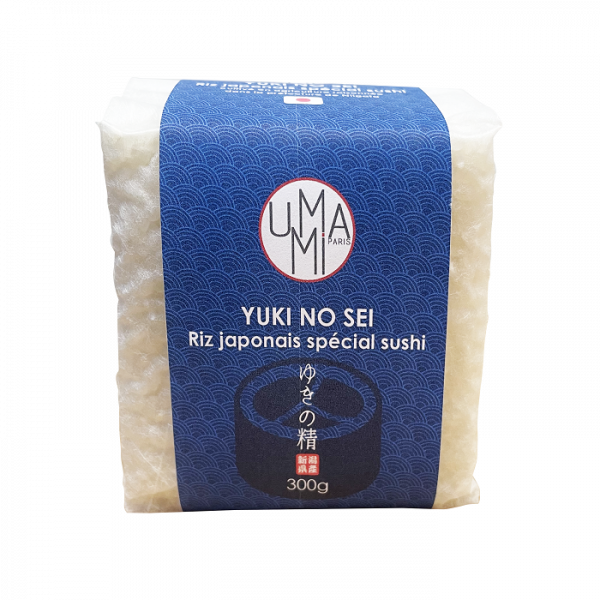
How to Use Special Sushi Rice in Cooking?
Season it with a mix of rice vinegar, sugar, and salt for a perfect base, ready to be shaped into sushi, nigiri, sashimi, or maki.
Some Tips for Using Yuki no sei Rice from Umami
Rinse the rice multiple times and let it drain. Transfer it to the rice cooker and pour water, 1.2 times its volume. If you're using a pot, cook covered on low heat. Three to five minutes after the water starts boiling, turn off the heat ensuring no residual water. If needed, extend the cooking time. Once cooked, keep the rice warm for 10 minutes under a lid, then add the sushi vinegar. Gently mix to aerate the rice. Plan for a 150g serving of dry rice for two people.
Some Suggestions for Using Yuki no sei
- - Salmon Sushi: Once your rice is cooked, slice your salmon in half and then into thin strips. Wet your hands and shape small handfuls of rice. Form them round and place the salmon slices on top. You can add wasabi or soy sauce as desired;
- - California Maki: After cooking your rice, mix in rice vinegar boiled with sugar and salt. Slice cucumber and avocado thinly, then spread 1cm of rice on each nori sheet. Sprinkle sesame seeds and turn the nori sheet to spread some wasabi. Top with cucumber, avocado, and crab, then roll to form the maki. Slice each roll into 8;
- - Sushi Cake: Post rice cooking, slice a cucumber. Cut salmon into cubes and marinate in soy sauce and sesame seeds. Slice avocado thinly. Using a rectangular mold, layer the sushi cake. Lay a nori sheet, cover with a rice layer, then add cucumber slices. Repeat, adding ingredients one by one on each rice layer. Finish with a nori sheet.
The Aromas of Yuki no sei Rice
When cooked and seasoned with rice vinegar, it emits a delicate and slightly sweet scent, allowing it to become a neutral backdrop, highlighting the ingredients it's paired with.
Umami's "Spirit of the Snow" Rice
The special sushi rice boasts a white and pure color like snow, which earned it the name 'Yuki no sei' meaning 'Spirit of the Snow' in Japanese. It is produced in the Niigata region of Japan, known for its cold winters and heavy snowfall. All the essential nutrients are thus provided for the rice production.
| Price/kg | 36,52 |
|---|---|
| Allergen | Absence |
| Native country | JAPON |
| Ingredients | rice 100% |
| Nutritional Info | VN Energie pour 100 g (energy for 100g) : 1490 kj /352 kcal |
| Contenance | 300g |
 Français
Français 